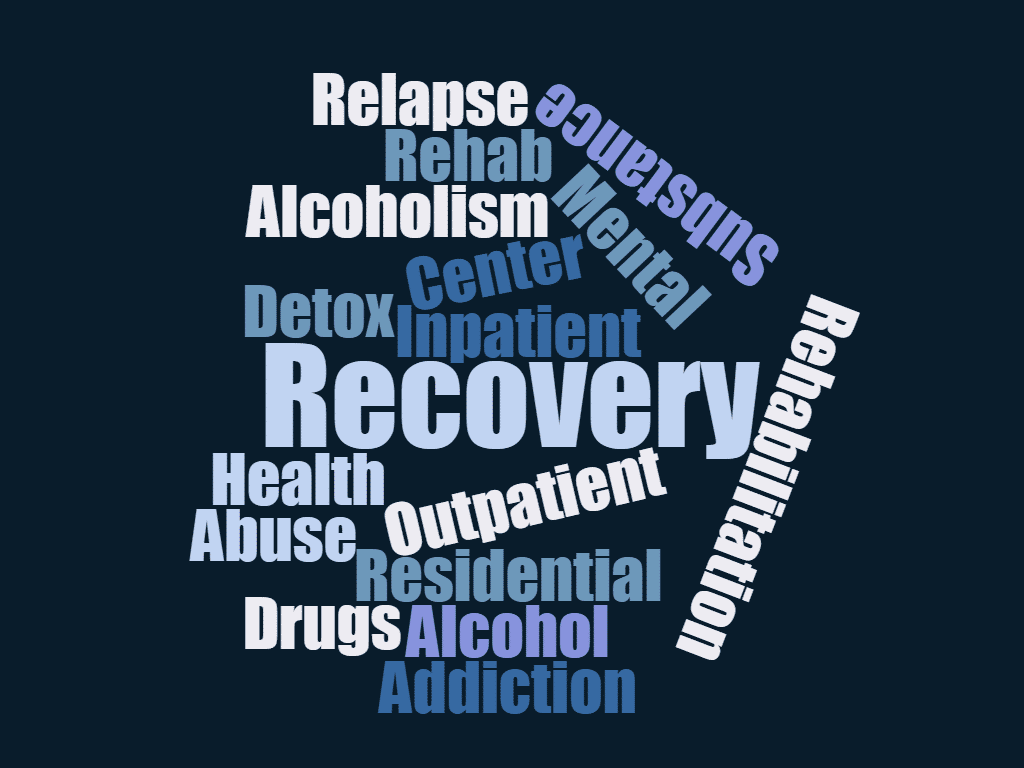With the number of buzzwords and terms thrown around in discussions and in the media about addiction, we’ve decided to break it all down and define the most common terms you’ll see surrounding addiction, treatment, and recovery.
- Addiction: In the context of substance abuse, “addiction” is a chronic, relapsing brain disease that is characterized by compulsive drug seeking and use, despite harmful consequences. It is considered a brain disease because drugs change the brain; they change its structure and how it
- Substance Abuse: An overindulgence in or dependence on an addictive substance, especially alcohol or drugs. Abuse doesn’t have to mean addiction; a person can binge drink or consume a harmful prescription drug in an inappropriate way or against the instructions of a physician without being addicted.
- Enabling: To enable is to give the authority or means to do something, usually out of love or in an effort to be helpful. While an enabler means well with their actions in most cases, when it comes to substance abuse, being an enabler can prolong a loved one’s addiction and prevent them from seeking recovery.
- Assessment: According to the Center on Addiction, an assessment is an evaluation of a person’s medical, psychological and substance use history, current health status, symptoms of addiction, potential withdrawal syndrome and related health conditions. When a client enters one of our facilities, a trained medical professional is on hand to assess each individual. This evaluation forms the basis of their future treatment plan.

- Mental Health: Our emotional, social and psychological well-being. Mental health affects how we act, think, make decisions, socialize and handle stress. Addiction and mental health usually go hand-in-hand regardless of which comes first.
- Detoxification: Medical detox is a supervised withdrawal process from addictive substances, under the monitored care of a licensed physician. Prolonged use of drugs and alcohol can cause physical dependence over time. When you stop using these substances, the result can be withdrawal symptoms which can often be unpleasant. A supervised medical detox is implemented to address these immediate physical effects and to flush any toxins left behind in the body as a byproduct of the chemical compounds which are found in alcohol and other drugs.
- Outpatient Treatment: Daily treatment at a clinic or facility that allows the client to return to home during non-treatment hours. At Spectrum’s outpatient centers across Massachusetts, clients visit daily for educational and group counseling sessions and/or for medication-assisted treatment.
- Residential (Inpatient) Treatment: Treatment that requires clients to live at the facility for a period of time. At the New England Recovery Center, clients receive a comprehensive assessment on day one. The assessment is used to develop an individualized treatment program which includes individual counseling, psycho-education and group therapy sessions.
- Medicated-Assisted-Treatment (MAT): An approach to addiction treatment that combines the use of medication in a traditional sense with counseling, education and other support. Spectrum Health Systems is a strong supporter of this research-supported method and offers access to methadone and buprenorphine, two medications commonly prescribed for addiction, at its many outpatient and inpatient treatment centers across Massachusetts.
- Methadone and Buprenorphine: are medications used to treat and help with detoxification in people with opioid dependence. Contrary to popular belief, neither medication gives the receiver a “high” or acts as a drug replacement. It simply gives the recipient a chance to live a normal day while curbing their withdrawal and cravings for other drugs.
- Rehabilitation: Rehabilitation begins the second someone walks in the door for treatment. Rehabilitation is the act of changing behaviors towards addiction to achieve abstinence and encourage themselves and others to engage in a healthy and substance-free lifestyle. Rehab and recovery are both ongoing processes that come with everyday challenges, but it’s important to remember that each day of recovery makes them stronger and better able to turn away from drugs and alcohol.
- Relapse: A deterioration in someone’s state of health after a temporary improvement. Relapse is common with addiction, where a person practices abstinence from their desired substance and experiences a setback. Common scenarios may be a return to an unhealthy environment, socializing with other addicts, and/or succumbing to withdrawal symptoms. It’s not uncommon for people struggling with addiction to return to treatment multiple times.
If you or a loved one is suffering from this disease, consider seeking professional help. Treatment works. Learn about admitting a loved one for alcohol or substance abuse treatment or call anytime 24/7: (844) 233-6372.
Related Resources:










